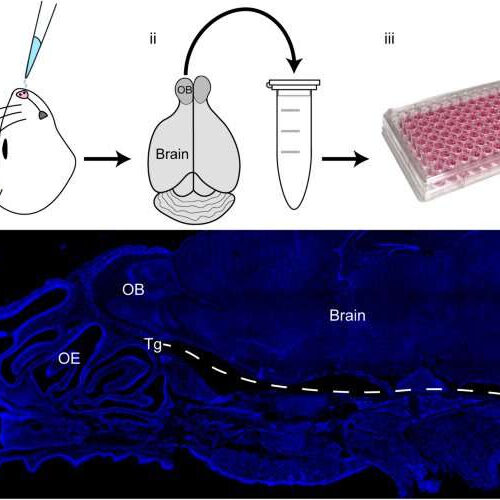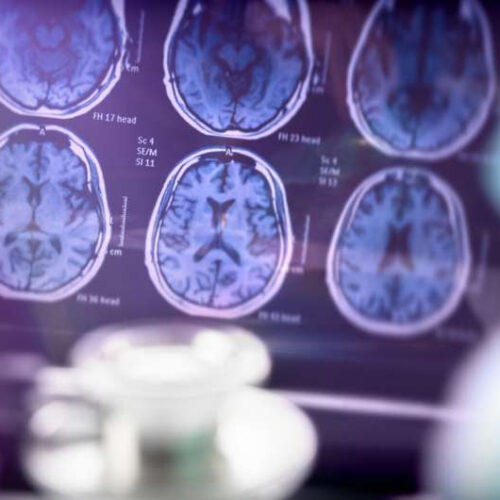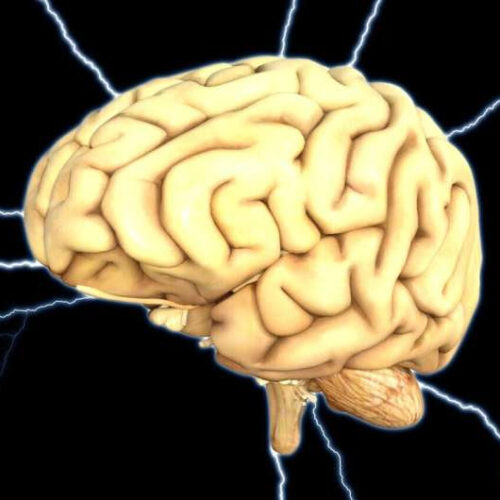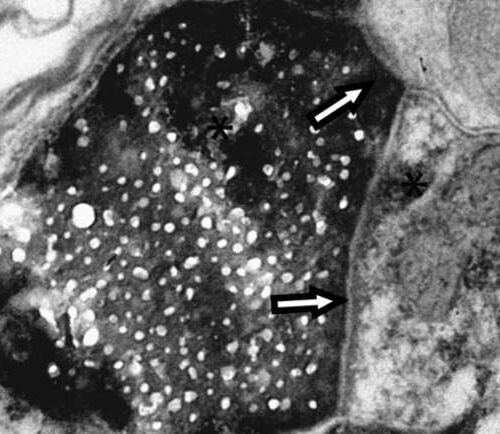For decades, the thinking about Alzheimer’s disease has been dominated by the so-called amyloid hypothesis which proposes that an abnormal accumulation of amyloid-beta plaques in various parts of the brain is the main driver of a cascade of events, leading to the loss of synapses and the death of neurons causing deficits in cognition and...
Category: <span>Alzheimer’s</span>
Does improving sleep reduce signs of early Alzheimer’s disease?
Clinical trial seeks seniors with sleep issues but no cognitive problems. The TV sitcom grandpa character who always seems to fall asleep at unfortunate moments is so common it’s almost a cliché. But daytime napping and disjointed sleep at night aren’t normal parts of aging. Sleep disturbances can be an early sign of a neurodegenerative...
Bacteria in the nose may increase risk of Alzheimer’s disease
by Griffith University Schematics illustrating the process for quantifying the amount of viable infectious C. pneumoniae present in various mouse tissues. (A) Mice were first intranasally inoculated with C. pneumoniae (i), some with epithelial injury and some without. Following either 24 h, 3 days or 7 days or 28 days post inoculation, selected tissues were collected and homogenized in...
Amyloid Lurks in a Third of Cognitively Normal People Over 70
Including nearly 20,000 participants, the largest study on amyloid prevalence to date estimates that a third of cognitively normal people older than 70 have amyloid building up in their brains. Published January 31 in JAMA Neurology and led by Olin Janssen and Willemijn Jansen at Maastricht University in the Netherlands, the meta-analysis compiled amyloid PET and cerebrospinal fluid (CSF)...
The Cell That Might Trigger Alzheimer’s Disease
Bret Stetka, MD January 31, 2022 It all started with genetic data. A gene here, a gene there. Eventually the story became clearer: If scientists are to one day find a cure for Alzheimer’s disease, they should look to the immune system. Over the past couple decades, researchers have identified numerous genes involved in various immune...
Clearance of protein linked to Alzheimer’s controlled by circadian cycle
by Rensselaer Polytechnic Institute Circadian rhythms control the removal of a key protein linked to Alzheimer’s disease. Credit: Rensselaer Polytechnic Institute The brain’s ability to clear a protein closely linked to Alzheimer’s disease is tied to our circadian cycle, according to research published today in PLOS Genetics. The research underscores the importance of healthy sleep habits...
Researchers introduce into human cells a genetic mutation that protects against Alzheimer’s disease
by Laval University Credit: Pixabay/Pete Linforth. Researchers from the Université Laval Faculty of Medicine and CHU de Québec–Université Laval Research Center have successfully edited the genome of human cells grown in vitro to introduce a mutation providing protection against Alzheimer’s disease. The details of this breakthrough were recently published in The CRISPR Journal. “Some genetic mutations increase the...
Brains of London cab drivers may help solve Alzheimer’s
The Knowledge – this is the name of a legendary test London taxi cab drivers need to take to be able to work in one of the largest and most significant cities in Europe. Despite the fact that we have easy access to satnav systems now, London cab drivers are required to know 25,000 street...
New evidence for the importance of educational attainment in brain health
by University of Helsinki Credit: Pixabay/CC0 Public Domain With aging populations and growing life expectancy, the number of people suffering from dementia is increasing. For more effective dementia prevention, it is important to better understand risk and protective factors affecting late-life cognition. It is known that midlife cardiovascular risk factors are associated with weaker late-life...
Researchers discover new type of cellular communication in the brain
by The Scripps Research Institute Scripps Research scientists tracked proteins tagged with biotin (black areas of this electron microscopy image) from retinal cells (pictured) to the visual cortex of the brain. Credit: The Scripps Research Institute Scientists at Scripps Research have discovered hundreds of proteins that are constantly transported throughout the healthy brain in small...





